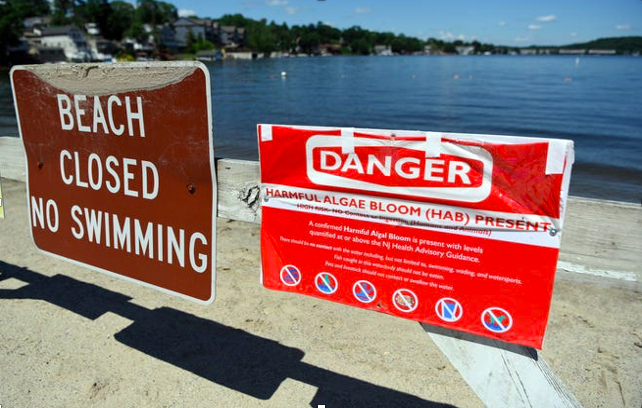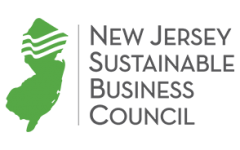A vibrant, sustainable economy depends on healthy watersheds. Adapting to an increase in climate-related stressors requires a combination of market and policy solutions that will reduce risk, protect property values and create jobs.
With the pandemic nearing its one-year mark, the summer of 2019 and the autumn of 2012 seem like distant memories. Harmful algae blooms (HABs) led to beach closures and recreational restrictions at several New Jersey lakes, and Superstorm Sandy’s storm surge devastated coastal businesses and communities.

Both events served as reminders of water’s power and importance in our everyday lives and our economy. Both served as harbingers of the escalating impacts of climate change, and as clarion calls for the private and public sectors to adapt to the rapidly emerging realities of the 21st century.
When Science Informs Market Innovation and Policy Action
As Princeton Hydro’s Geoff Goll explains: “Economically, HABs do significant damage, from bans on recreational waters that support local economies to threats to health. A property’s value near an infested lake can drop by up to $85,000, and waterside communities can lose millions of dollars in revenue from tourism, boating, fishing and other sectors.”
He goes on to recommend actions that we must take to not only protect against future risks, but will yield long-term benefits as well. Market-driven innovations include investing in “green stormwater infrastructure sustainable and resilient designs such as rain gardens, constructed wetlands, floodplain reconnection, stream restoration, permeable pavement and green roofs.”
Two Companies Leading the Way
Hugo Neu’s Smart Growth-awarded, state-of-the-art Kearny Point campus is becoming a bold regional and national model for the adaptation and rebirth of sites as the future of sustainable, watershed-driven development and revitalization employing green stormwater infrastructure (case study here).
Riverbend GreenRoof is combining multiple green infrastructure systems including green roofs that can significantly reduce stormwater fees and heating and cooling costs. Additional savings may be realized through stormwater management grants, tax incentives, and increased property value (case study here).
Relying on market forces alone is not enough to address the scale of the risk or the opportunity, however. Bold, forward-thinking policy leadership is critical as a way of steering private investment and innovation in a more sustainable direction through incentives, programs and regulations.
Stormwater Utilities: A Smart Investment for Local Economies
In 2019, New Jersey passed a law authorizing municipalities and counties to begin implementing a stormwater utility. These utilities are already in place in 40 states. Stormwater utilities are markedly improving water quality in the Chesapeake Bay, for example, stimulating tourism and the crabbing/fishing industry.
As this article explains, a stormwater utility “allows municipalities to collect fees based on the amount of runoff generated by impervious surface on a property. These fees are then used to invest in green infrastructure that is designed to reduce the amount of runoff, mitigating the risk of harmful algae blooms, thus protecting the health of the lake and adjacent communities.”
Transitioning from gray infrastructure to green infrastructure is feasible, effective and yields a favorable return on investment for entire communities: $7 to $27 in benefits for every dollar invested.
What Can Responsible Businesses Do?
· Learn more about how “Clean Water is Good for Business” by reading the business case and signing on to the campaign’s guiding principles and checking the box for future updates and information on green infrastructure and related policies.
· Encourage your local policy makers to consider implementing stormwater utilities and share this New Jersey Green Infrastructure Municipal Toolkit.
Richard Lawton is Executive Director of the NJ Sustainable Business Council (a state affiliate of ASBC) which is a growing network of companies and business organizations working to advance market and policy solutions for a more vibrant, sustainable and equitable economy.

